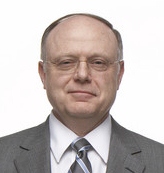Like the rest of Big Pharma over the past couple of months, Pfizer ($PFE) has been defending its U.S. drug prices against unprecedented criticism. Its price tags are appropriate, the company says, given the time, effort and money required to develop new meds. To critics who point out the big costs patients face, CEO Ian Read recently pointed the finger at insurance companies that are using high deductibles, coinsurance and copays to limit their own spending and boost their bottom lines.
But the cost burden on patients remains--and now, Pfizer says it's going to help more patients shoulder it. The company is doubling its income threshold for patients to qualify for free drugs.
That means families earning up to four times the federal poverty level will be able to get 40 Pfizer meds at no charge. For example, a family of four could earn up to $97,000 and still get access to free Pfizer meds.
 |
| Pfizer CEO Ian Read |
Read told the Associated Press that his company is "responding to challenges patients are having," citing insurance cost-shifting and exclusionary formularies that bar access to pricey meds. Pfizer's move to pick up more of those costs isn't a long-term solution, Read suggested, but for now, it's necessary.
"There are people who are falling through the cracks through no fault of their own," Read told the news service. "As a stopgap, we're willing to do this."
Pfizer tells the AP that its Pfizer RxAccess program helped 350,000 patients last year, and the company expects to provide no-cost meds to a few hundred thousand more under its new guidelines.
Pfizer EVP Sally Susman emphasized Read's point that "patient assistance is not a permanent solution," but called it a necessary step right now. "The real solution is to have a system that provides patients with access to innovative new treatments their doctors' prescribe and insurance plans with good coverage," Susman said.
In a recent interview with Forbes, Read said that payers' spending on prescription meds saves them many times more on the cost of advancing disease and its acute complications. Though some of the pharma industry's products in general--and Pfizer's in particular--may seem pricey, they offer good value for the money, Read contended.
It's one line of defense that traditional drugmakers might use to combat accusations of unnecessarily high prices, and even price-gouging. Intense media and political attention on several drugmakers that have taken eye-watering price increases--among them Turing Pharmaceuticals and its 5000%-plus price increase on the infection fighter Daraprim, and Valeant Pharmaceuticals' ($VRX) range of price hikes, both overnight and repeated--has cast the entire industry in a bad light, despite the fact that most pharma companies, Big Pharma included, invest hefty amounts of money in developing new treatments, and Turing and Valeant don't. It doesn't help that most drugmakers do use price increases--often far beyond the rate of inflation--to boost sales, albeit increases that don't come near the size of Valeant and Turing's most egregious.
So far, though, leading drugmakers haven't made any sort of concerted effort to combat the critical onslaught. But the industry trade group PhRMA yesterday released a presentation that includes some thoughts similar to Read's, including calculations of how prescription drugs can lower the overall cost of healthcare, and one example of past drug spending that was lamented at the time as unsustainable--HIV meds--that has proven otherwise since. A couple of slides in the PhRMA deck also point out how payers have been shifting the cost burden onto patients.
- read the Pfizer release
- get more from the AP
- see the Pfizer RxPathways site
- check out the PhRMA slide deck
Special Reports: Top 15 pharma companies by 2014 revenue - Pfizer | 10 big brands keep pumping out big bucks, with a little help from price hikes